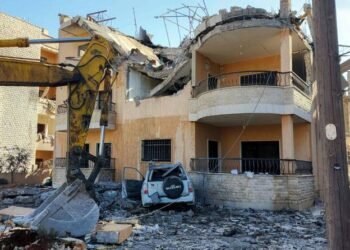The UAE has become a magnet that attracts an extensive inflow of high-net-worth individuals (HNWI) and predicts the relocation of about 4,000 millionaires this year. The forecast shows that the financial wealth in the UAE will reach $1 trillion, with an annual rate of 6.7 percent, in 2022.
There is a net loss of millionaires from the powerful developed economies because of high inflation and uncertain economic situation. It results in higher investment interest towards GCC nations, particularly the UAE.
The UK, once known as the financial centre of the world, has witnessed a steady loss of millionaires with an expected outflow of 1,500 HNWIs in 2022, and the UAE appears to be a leading beneficiary.
Also, the number of ultra-high-net-worth individuals (UHNWIs) with a $30 million net wealth possess about 41 per cent of the wealth and might increase by 43 per cent by 2026 in the UAE.
UAE gains traction
Over the past few decades, the UAE has focused on tourism and trade, with an agile approach to adopting new immigration regulations. Investors migrate, intending to explore business possibilities and residency options available. The UAE has gained traction in attracting global attention for its efficient leadership during the pandemic and stands for the benefits of competitive tax rates.
Economic and social development is increasingly appealing to HNWIs who want to invest in the real estate and industrial sectors.
Emerging business opportunities
The global community of high-net-worth individuals is choosing the UAE as their residential location because of the latest economic and business incentives launched to promote Foreign Direct Investment (FDI).
With Expo 2020, the high-tech and sustainable investments reached a high point internationally. However, the Ministry of Economy launched initiatives to attract the top entrepreneurs and investors in the world, offering a quick business setup process with flexible commercial and residential leases. The competitive and progressive approaches attract capital, digital asset entrepreneurs, remarkable talents, private wealth, and foreign investments.
The recent forecast from the estimates that equities and investment funds are forecast to grow by 8.8 percent annually by 2026. The UAE is the only country that caters to the high-end luxury lifestyle for high-net-worth individuals compared to acclaimed cities like London, Tokyo, and New York.
Economic incentive initiatives by UAE
The UAE offers a more attractive ecosystem for startups, entrepreneurs, and self-employed individuals, providing a business-friendly landscape which offers immense possibilities to HNWIs for immigration and investment in the country.
With over 40 economic free zones, investors have the flexibility to engage in more than 2,000 licenced business activities with full ownership of the company.
Top Freezones for Investments
1. Dubai International Financial Centre (DIFC)
DIFC is a global financial hub for the Middle East, Africa, and South Asia (MEASA), hosting the leading international banks, law firms, insurance companies, and GCC FinTechs. It is a comprehensive financial ecosystem with over 2,700 companies, connecting the fast-growing economies of Asia, Europe, and America.
With a unique legislative system and independent regulator, DIFC is one of the perfect bases to start financial, non-financial, or retail businesses.
2. Dubai World Trade Centre (DWTC)
Under the jurisdiction of DWTC, entrepreneurs can establish a Free Zone Company (FZCO), Free Zone Establishment (FZE), and UAE-Foreign branch. It also offers licensing to commercial, general trading, professional, event management, single/multi-family offices, and even e-commerce businesses.
3. Dubai Multi Commodities Centre (DMCC)
DMCC, known for commodities trading, is the global trade centre for more than 21,000 ventures from various sectors. The Free zone offers boundless opportunities for trading with world-class commercial, residential, and financial services to set up and establish a business.
Dubai, popularly known as the City of Gold, investors tend to setup precious metal business as 25% of global gold trade happens within the DMCC. The freezone offer infrastructure for the entire gold value chain from research to trading through initiatives such as DMCC Tradefow, the Dubai Gold and Commodities Exchange (DGCX) and DMCC Vault.
Also awarded as the ‘Global Free Zone of the Year’, DMCC is the ideal freezone for start-ups/SMEs or to expand your existing enterprise with an access to the unparalleled infrastructure, network, flexible solutions, and quality lifestyle in a vibrant community.
The wide range of integrated economies, driven by technological and highly advanced infrastructure, strengthens the business opportunities in the country. Dubai recently received a high ranking in the ‘FDI Global Cities of the Future 2021–2022, which proves its vision to be a sustainable and dynamic ecosystem for high-net-worth individuals.
Though the most developed sectors for investment opportunities include oil, gas, finance, gold, and tourism, Dubai recently ranked fourth for prime residential capital value growth, which is always a high-yielding property market. The rising demand for luxury realty will continue an upward trajectory, promising a higher return on investment (ROI). As global HNWIs and investors buy more properties, residential property costs will grow by 5.3 percent in Dubai in 2022.
UAE also provides investment opportunities in emerging industries like cryptocurrencies, agri-tech, and the metaverse. Moreover, the government offers significant startup incentives, making the country a gateway to HNWI investors.
UAE emerges as a business hub
The UAE can be an operational hub to access substantial markets globally. The unparalleled opportunities, government initiatives, and flexible economy urge investors to make it their second home.
Based on interviews with wealth and fund managers, it is evident that millionaires keep capital as assets and investments in businesses, followed by equities and real estate properties.
Even though the oil and gas markets are significantly prominent in the UAE, if you’re looking for business investment opportunities, there are potential sectors to consider. Some popular sectors in the financial market include insurance, and trading. With the rising demand for technology adaptation, IT-based companies that offer app development, virtual reality (VR), artificial intelligence (AI), and digital marketing can easily capture the market.
UAE attracts high net-worth individuals to scale up their entrepreneurial plans in the tourism and hospitality sector by setting up high-end boutiques, resorts, and hotels in a versatile tourist destination.
Visa reforms gain popularity
The UAE introduced new visa policies and residency permits to attract high-end ventures and investments, making the nation a perfect destination for innovative investments.
The golden visa, launched in 2019, aimed to encourage overseas investors and HNWIs to root their residency in the country. It offers a 10-year long-term residency scheme with an automatic renewal. Whereas green visa allows individuals to attain a 5-year residency permit for themselves and their families without a sponsor. Entrepreneurs can also apply for a business visa through investing or starting a business in any emirate.
With quality living, a healthcare system, a stable economy, and a luxury lifestyle, Dubai attract net-worth retirees and expats to invest and retire through a retirement visa that offers a 5-year renewable residency visa for their spouse and dependents.
The mutually reciprocated visa changes prevail in granting exclusive benefits to HNWIs to invest and settle down.
Moreover, several banks in the UAE facilitate a 10-year Golden visa based on a fixed bank deposit of at least AED 2 million for a minimum period of 3 years.
As high-net-worth individuals continue to explore investment and business opportunities for expansion, travel mobility, the standard of living, and wealth perseverance with legal protection, the agile approach of the UAE promotes investment migration.
Pratik Rawal is the managing partner at Ascent Partners. The views expressed are his own and do not reflect the newspaper’s policy.







 United Arab Emirates Dirham Exchange Rate
United Arab Emirates Dirham Exchange Rate

